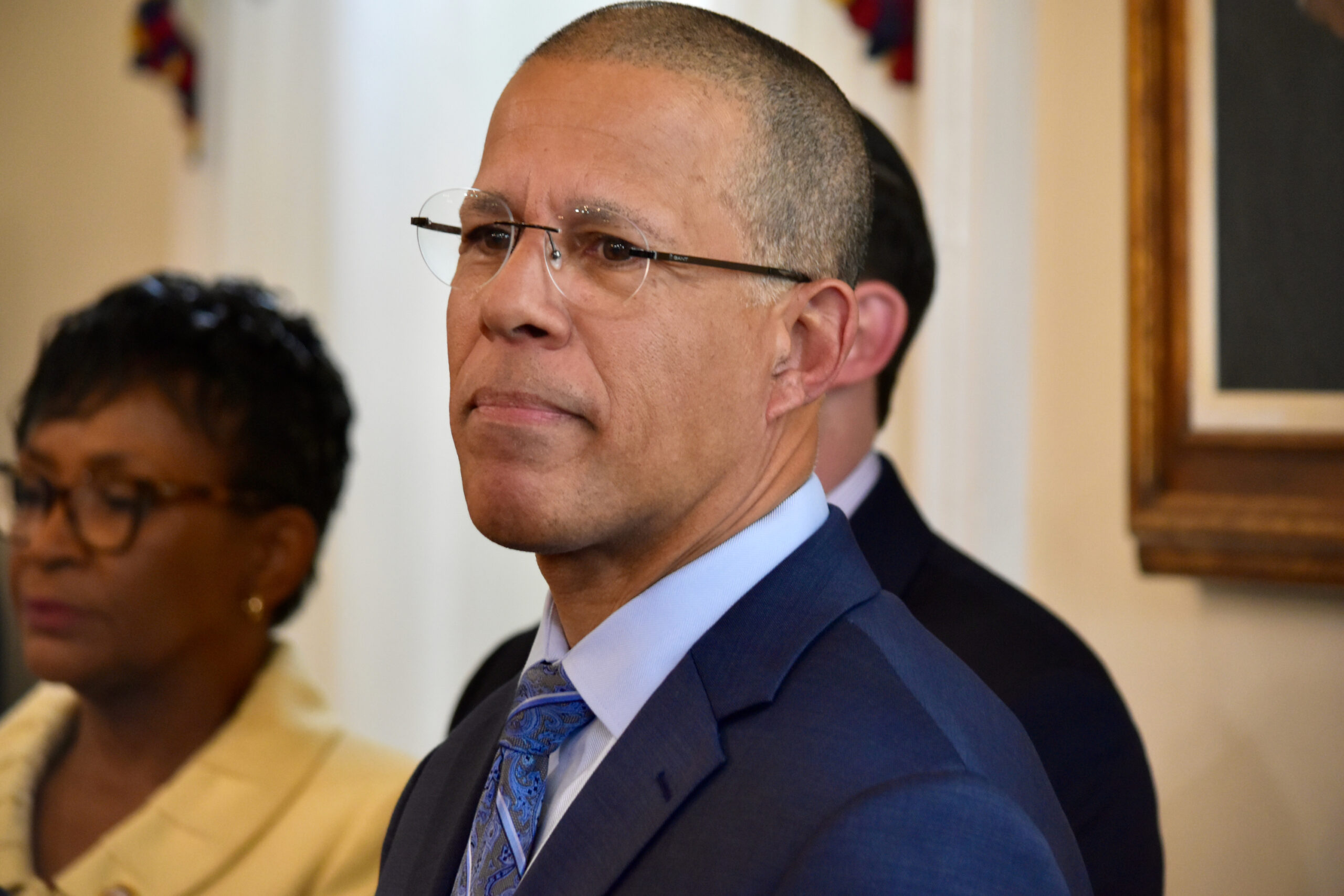Maryland Attorney General Brian E. Frosh (D) joined his counterparts in 17 states Thursday in calling for Congress to grant state attorneys general, across the country, the authority to investigate unconstitutional policing practices.
“Our nation is in the midst of turmoil following yet another instance of police brutality against black people,” Frosh said in a statement. “We are asking Congress to give attorneys general the authority to conduct pattern-or-practice investigations, and the tools to bring enforcement actions when the federal government is unwilling to act.”

Maryland Attorney General Brian E. Frosh (D). Photo by Danielle E. Gaines.
Their letter follows a series of high-profile killings of black people at the hands of police — including Breonna Taylor, who was shot by police in her home in Louisville, Ky., in March, and George Floyd, who was killed in Minneapolis, Minn., last week after a police officer pinned him to the ground by his neck for almost nine minutes.
“These incidents are not isolated,” the letter reads.
A 2018 study, issued by the U.S. Commission on Civil Rights, found that people of color account for nearly 63% of police killings, while comprising just under 38% of the total U.S. population.
And the advocacy group Mapping Police Violence revealed that, from 2014 to 2019, 99% of police killings did not result in charges or convictions.
“Many members of the public have no trust in the police, with tensions visible in the streets across this nation,” the letter reads. “Urgent action is necessary at all levels of government to remedy the injustice of police misconduct.”
In their letter, the 18 attorneys general asked U.S. Congressional leaders to consider expanding the law enforcement misconduct portion of the Violent Crime Control and Law Enforcement Act of 1994 to allow them to issue investigative subpoenas.
The Department of Justice has proposed this before as an oversight measure, the coalition told U.S. House and Senate leaders.
The attorneys general said they need authority to investigate unconstitutional policing practices — especially when the U.S. Department of Justice declines to act.
Between 1994 and 2017, the Department of Justice incited just 69 pattern-or-practice investigations leading to 40 court-enforceable consent decrees, the coalition noted in their letter.
In March 2017, Baltimore City entered into a consent decree with the U.S. Department of Justice to resolve the DOJ’s findings that the city’s police department had engaged in practices and conduct that violated Constitutional rights and federal law.
But, since January 2017, the coalition said, the Department of Justice has “largely curtailed ability of federal law enforcement to use court-enforced agreements to reform local police departments accused of abuses,” claiming that the responsibility of policing the police lies with state and local jurisdictions.
The attorneys general said that this has left communities across the country without civil rights protections.
“In short, there is a long history of police abuse against people of color in our country,” the coalition wrote. “As instances of police misconduct continue to occur, State Attorneys General must have effective tools to conduct robust investigations into potential police misconduct to ensure accountability in our respective states.”
Additionally, the coalition asked that attorneys general be given the power to gather data surrounding use of force by law enforcement officers. The coalition said this will help identify agencies with persistent patterns, and noted that one of the officers charged in the death of George Floyd had 18 prior complaints filed against him.
Attorneys generals from different states have picked up where the Department of Justice has left off. Notably, Illinois’ Office of the Attorney General filed a federal lawsuit against the City of Chicago alleging that their police department was unconstitutionally engaging in misconduct and excessive force patterns aimed disproportionately at black and Latino communities, leading Chicago to enter into a consent decree in July 2018.
“However, much more could be done if Congress formally recognized and empowered all State Attorneys General to conduct federal ‘pattern-or-practice’ investigations, in addition to authority they may already have under state statutes,” the letter reads.
“One thing is certain: if US DOJ continues to abdicate its responsibility to pursue police reform, someone has to take action. We stand ready to do so.”




 Creative Commons Attribution
Creative Commons Attribution